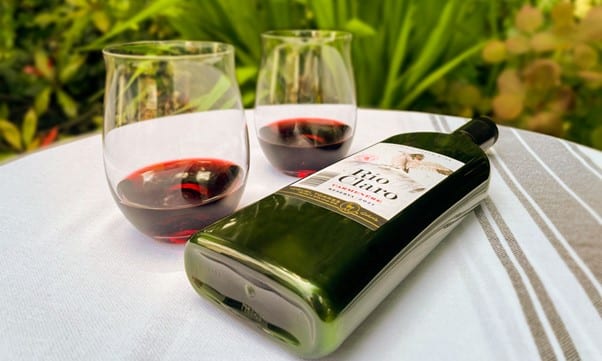Alternative Verpackungen in der Weinindustrie zur Reduzierung des CO2-Fußabdrucks
Alternative packaging in the Wine Industry: what do they look like, what are they made of, how suitable are they for the wines that pay us so much?</span>
Time to read the article: 5 min.
In an era where concern for the impact on the environment is becoming more and more present, the wine industry is turning its attention to alternative packaging to promote the benefits climate and to reduce the CO2 footprint. In this context, wine changes its usual packaging from glass bottles. These are no longer the only preferred option. Instead, a varied range of alternatives appears, offering an ecological and sustainable solution.
Current debates about the climate impact of wine in glass bottles are increasingly intense, especially since studies show that the CO2 footprint of wine in the bottle can be up to 10 times larger than that of other types of packaging. This finding leads manufacturers to explore new options, turning their attention to innovative packaging, sustainable materials and efficient delivery methods.
Currently, there are several companies that offer innovative solutions in terms of alternative packaging for wine. These vary from premium recyclable “bags-in-a-box” to cardboard bottles with plastic inserts or stainless steel barrels. The basic idea behind these solutions is recycling and circular design, being the center of their business model. These companies undertake to reduce emissions throughout the production and consumption of the wine, until its consumption by the beneficiary, obtaining certifications to validate their efforts.
Acceptance of alternative packaging is increasing, especially among environmentally conscious consumers. For retailers, these alternatives offer flexibility, availability and reduction of packaging waste, allowing them to offer a greater variety of wines by the glass. At the same time, these packages also offer opportunities for premiumization of wines, countering the previous perception according to which plastic and paper packages are reserved only for simple wines.
The flat PET bottles from Packamama are lighter than traditional glass bottles and requires less space. This seems to have convinced the people at Aldi. (Photo: Packamama / Miguel Torres)
Aldi UK adopts alternative packaging for wine. According to industry publication Beverage Daily, the discount retailer has chosen two wines to bottle in “paper bottles” from Frugalpac, starting on March 18, 2024. Soon after, Harpers announced the launch of its own wines in flat PET bottles from Packamama, at Aldi UK. Both packaging options are considered more durable alternatives to glass bottles, due to their significantly lower weight. In addition, flat PET bottles offer logistical advantages because they fit almost a third more bottles on a pallet.
A notable example of alternative packaging is represented by the flat plastic bottles offered by Packamama. They are made of 100% recycled polyethylene terephthalate (PET), placing them at the forefront of ecological packaging solutions. The choice of the name Packamama, inspired by Pachamama, the Mother Earth goddess for many indigenous peoples of South America, underlines the company’s commitment to environmental protection and respect for natural resources.
The wine industry is turning its attention to alternative packaging solutions to reduce the impact on the environment and promote sustainability. However, market acceptance of these alternatives still needs to be demonstrated, and consumers, companies and legislators need to work together to ensure the creation and use of functional recycling cycles globally. Although glass bottles will continue to be preferred for wines that can age, alternative packaging represents a promising solution for young and fruity wines, contributing to the protection of the environment.
Quelle: Meiningers-International

